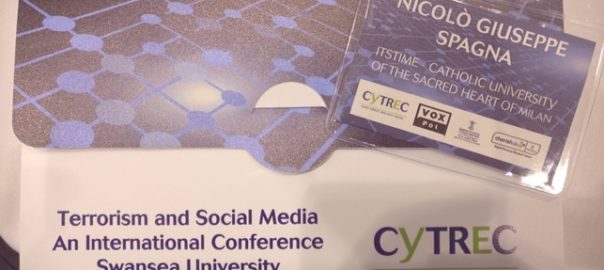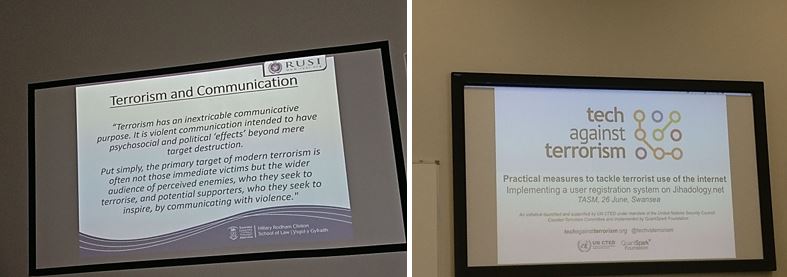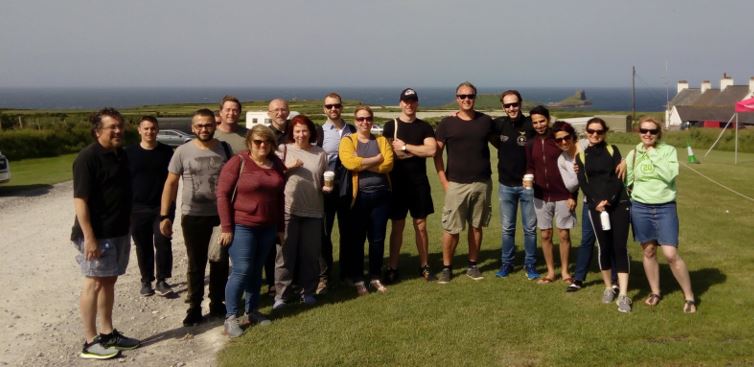In the past week ITSTIME, with our research analyst Nicolò Spagna, attended as a speaker to Terrorism and Social Media Conference (#TASMConf) in Wales at Swansea University. #TASMConf is an international conference with the aim to explore the Terrorism and SocialMedia nexus through a wide range of presentations and meetings amongst experts from a different range of disciplinary backgrounds, professions and organizations. The conference was opened by an amazing keynote speech that pointed out the challenge and the related dilemma’s of defining extremism also with relation to terrorism definitions. It was interesting and also curious to start with one of the most notorius academic problems of defining terrorism and extremism, which often makes it difficult to manage these dimensions. It was immediately introduced important recommendations – “Where We Go Next” – by touching the most important one: “Move beyond the Islamization of extremism studies”. A lot of interesting works have been presented during two intensive days. Nicolò Spagna presented his research intitled “Investigating digital caliphate on Telegram platform through digital ethnography” by setting out the challenge of understanding terrorist mindset, starting from digital environment in which usually terrorists share their beliefs and visions of worlds. Through digital ethnography has been possible to gain a better understanding of pro-IS digital community on Telegram app by defining some interpretational keys. In the Telegram session, other speakers shown a fascinating researches. For instance, they focused on ISIS culture on Telegram app. it was highlighted the pro-IS Telegram network as a strong community based on specific simbols, norms, values and narrative lines, such as victimhood and revenge, brotherly in Love and Anashid. “Cat and Chocolate” emerged as common themes on Telegram amongst IS supporters combining in this way “gore stuffs” and “warmer images”. In the same panel, a speaker provided a view on the lifecycle of IS propaganda material from Telegram to Twitter, Interesting the use of hashtags in order to “track” narrative lines and movements of IS supporters in the digital arena.
The idea that “Terrorism is not simply violence, but communication”, emerged during the analysis of Terrorism in relation to strategic communications. The definition of counter-narratives are often an issue because the radicalization is a multifactorials process composed of drivers push and pull factors. In this session was also setted out the importance to study new ways to define campaigns to raise public vigilance without increasing public fear. Another key point was the necessity of make efforts in order to tackle terrorist exploitation of internet technologies. Tech Against Terrorism presented the case study of Jihadology platform.
Although has been touched just few key points here, during the entire conference were shown about 80 fascinating presentations related to terrorists’ use of social media. #TASMConf has highlighted the ever more importance of increasing the collaboration amongst academic circles, law enforcement members and non-academic stakeholders, indeed the sharing of ideas and new ways to approach extremism issues are the first challenge that we always have to face in order to develop efficient counter-extremism approaches.
The first aim is always to keep one step ahead of terrorists.
Finally,many thanks goes out to all organizers, specifically Swansea University and CYTREC research centre, and all delegates and speakers who joined the event by sharing their contributions and team-building experiences during the event.




